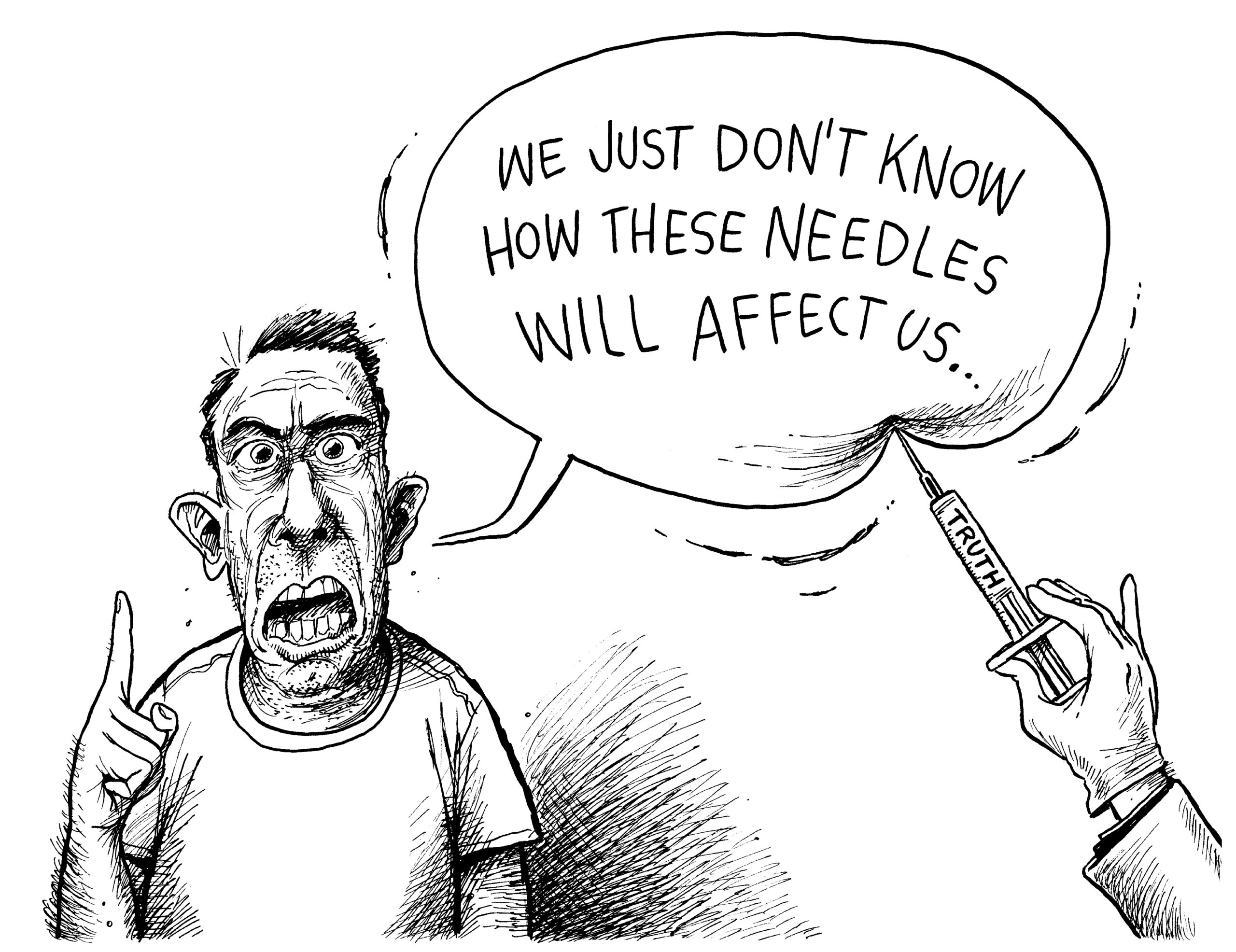The good news last week was Milan Puskar Health Right finally received the sharps containers it ordered over a year ago; the bad news was a judge dissolved the West Virginia ACLU’s temporary restraining order and denied the preliminary injunction against SB 334, the law the Legislature passed in April that will shut down all needle exchange programs not part of a licensed harm reduction program.
News of the court’s dismissal — which allows SB 334 to go into effect — has overshadowed the feeling of victory related to the sharps containers.
The sharps containers, which can be used to dispose of dirty needles and syringes, are still important. They might be even more important now that the new law will hamstring needle exchange programs — as long as Health Right is still able to install the containers around Morgantown.
Needle litter has been an ongoing problem in Morgantown. That’s why Health Right fought so hard to get the sharps containers and permission to install them. Hopefully, having disposal containers near the places needle litter is found most often will encourage intravenous drug users to discard used syringes properly.
That proper disposal is a key factor in keeping down outbreaks of diseases that spread through dirty and re-used syringes, like HIV and hepatitis C.
An arguably more important factor in preventing and containing disease outbreaks is having needle exchange programs in place, but we’re about to see the already diminutive number of those in the state become even smaller.
Perhaps most damaging is SB 334’s requirement needle exchanges be part of a licensed harm reduction program. Harm reduction programs offer the resources that help people reach sobriety and stay healthy, such as vaccinations, virus testing and social services. They can include needle exchanges, but don’t have to. Essentially, harm reduction programs treat the long-term problem — the disease of addiction — while needle exchanges treat the short-term problem — getting used syringes off the street to protect the entire community.
Perhaps equally as damaging is SB 334’s demand that needle exchanges must operate on a one-to-one exchange. Unfortunately, experience has shown us this doesn’t work.
In 2015, Charleston shut down its county-run needle exchange. Its licensed harm reduction program, WV Health Right, operates a strict one-for-one needle exchange. As such, despite its location in one of the state’s population centers, WV Health Right has the third lowest syringe distribution and Kanawha County has a CDC-recognized HIV outbreak.
Morgantown’s Milan Puskar Health Right, on the other hand, tries for a one-to-one needle exchange but isn’t strict about it. As such, it distributes the most syringes, officially serving three counties and actually helping people from 17 counties because of the lack of needle exchanges in the region. Monongalia County hasn’t had more than five drug-use-related HIV cases in any of the last five years, compared to Kanawha County’s 60 cases as of May.
As increasingly seems to be the case in Morgantown, we take one step forward, just to have the Legislature drag us two steps back.




